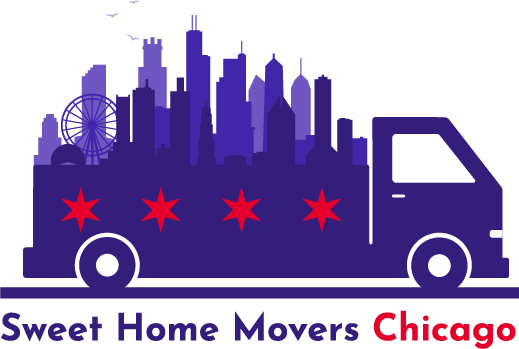What to ask a Landlord Before Renting
Renting a new home is an exciting opportunity, but it also comes with a lot of considerations and decisions to make. The process often involves a whirlwind of decisions, paperwork, and preparation. One of the most crucial steps in this journey is your interaction with the landlord. Asking the right questions can save you a lot of trouble down the line, ensuring that you’re fully informed about your new living situation. This blog will outline eight important questions to ask a landlord before moving in. By the end, you’ll know exactly what to ask the landlord before moving in to avoid misunderstandings and future inconveniences.
1. What is Included in the Rent?
One of the most essential questions to ask the landlord before moving in is understanding exactly what your rent covers. Does it include utilities like water, electricity, gas, or even internet? Or will these be additional monthly expenses?
Some rental agreements may cover specific utilities or include amenities like garbage removal or maintenance services. Without clarifying this upfront, you could end up with unexpected expenses. It’s important to ask:
- What utilities are included in the rent?
- Are there any shared expenses with other tenants?
- Is there a monthly maintenance fee?
These questions will help you establish your actual monthly costs and avoid surprises when the bills arrive.
2. What is the Policy on Rent Increases?
No one wants to be blindsided by a sudden rent hike, so it’s critical to know the landlord’s policy on rent increases before signing a lease. This is particularly important if you plan to stay in the rental for an extended period. Ask:
- How often does the rent increase, and by how much?
- Is there a cap on rent increases during the lease period?
Some landlords may increase rent annually based on inflation or market rates. Understanding this will help you plan your finances and decide whether the property remains affordable over time.
3. What is the Lease Duration and Termination Policy?
Lease terms can vary widely. Some landlords offer month-to-month leases, while others may require a year-long commitment. It’s important to ask what to ask the landlord before moving in regarding the lease’s length and what happens if you need to terminate the lease early. Key questions include:
- Is the lease term fixed or flexible?
- What are the penalties for breaking the lease?
- What is the notice period for moving out?
Make sure to get this information in writing, so you have a clear understanding of the rules. Life can be unpredictable, and having flexibility in your lease agreement can be a big advantage.
4. Are There Any Restrictions on Personalizing the Space?
Personalizing your rental can make it feel more like home, but not all landlords allow modifications or changes to the property. This is one of the questions to ask a landlord that can help you avoid issues later on. Ask:
- Can I paint the walls or hang pictures?
- Am I allowed to make minor improvements like installing shelves?
Understanding these rules upfront will ensure that you can make the space your own without facing penalties for unauthorized changes.
5. What is the Maintenance and Repair Policy?
Knowing who is responsible for maintenance and repairs is vital to ensuring a hassle-free rental experience. Maintenance issues like plumbing leaks or appliance breakdowns can significantly impact your comfort, so it’s essential to know what to ask the landlord before moving in about repairs and maintenance.
Ask your landlord:
- Who is responsible for routine maintenance?
- How quickly are repairs typically addressed?
- Is there an emergency contact for urgent repairs?
Some landlords might have a dedicated maintenance team, while others may expect tenants to handle small repairs on their own. Make sure you’re aware of your responsibilities and what the landlord is obligated to address.
6. What Are the Rules For Guests and Subletting?
If you plan to have visitors frequently or consider subletting the apartment in the future, it’s important to clarify the landlord’s policies in this area. Ask the following:
- Is there a guest policy, and how long can guests stay?
- Can I sublet the apartment if needed?
Some landlords impose restrictions on long-term guests or require written permission for subletting. If you’re considering these options, you need to know these rules upfront to avoid breaking the lease agreement.
7. What is the Security Deposit and Refund Process?
One of the first costs you’ll face when renting a new property is the security deposit. It’s essential to know how much is required, what it covers, and how to get it back when you move out. Here’s what to ask the landlord before moving in about the security deposit:
- How much is the security deposit?
- What does it cover?
- How and when will it be refunded?
Ask the landlord to clarify the conditions under which the deposit could be withheld. This might include property damage, unpaid rent, or cleaning fees. Knowing these details ensures you understand your financial obligations and how to secure a full refund.
8. Are There Any Building or Community Rules?
Every rental property has its own set of rules, whether it’s an apartment in a large building or a standalone house. These rules might include quiet hours, pet policies, parking regulations, and waste disposal guidelines. Make sure you ask:
- Are there any community rules I should be aware of?
- Is there a designated parking spot, and what are the guest parking rules?
- What are the pet policies?
These rules can greatly affect your day-to-day life, so be sure you’re fully informed before committing to a property.
Why It’s Important to Ask These Questions
Now that we’ve covered the eight essential questions to ask the landlord before moving in, let’s discuss why it’s important to ask them.
1. Avoid Misunderstandings
Clear communication with the landlord helps to avoid misunderstandings that could lead to disputes down the line. For instance, knowing the maintenance policy ensures that you won’t be stuck with a repair bill that you thought the landlord would cover. Asking questions to ask a landlord ensures that you’re both on the same page about your responsibilities.
2. Financial Planning
Knowing the details of your rent, potential rent increases, and the security deposit policy helps with financial planning. It ensures you won’t face unexpected expenses that could strain your budget.
3. Peace of Mind
Asking what to ask the landlord before moving in gives you peace of mind knowing that you’re making an informed decision. Moving into a new home is stressful enough without the added worry of potential conflicts with your landlord or hidden costs.
4. Understanding Your Rights
In some cases, landlords may attempt to enforce rules or fees that aren’t legally enforceable. By asking the right questions, you can better understand your rights as a tenant. For instance, if a landlord tries to withhold your security deposit without a valid reason, you’ll know how to challenge that.
Conclusion
Moving into a new rental property is a significant life event, and knowing what to ask the landlord before moving in can make all the difference between a positive and negative experience. The eight questions outlined in this blog will help you gather the essential information you need before signing any lease agreement.
Remember that your relationship with your landlord is vital to your overall rental experience. Open communication from the beginning can help foster a positive dynamic and reduce the chances of disputes later on. So, as you prepare to move, take some time to ask these questions to ask a landlord and ensure that you’re making the best possible decision for your new home.
The answers you get from these questions will shape your living experience, ensuring you’re not just moving into any place, but the right place for you.

